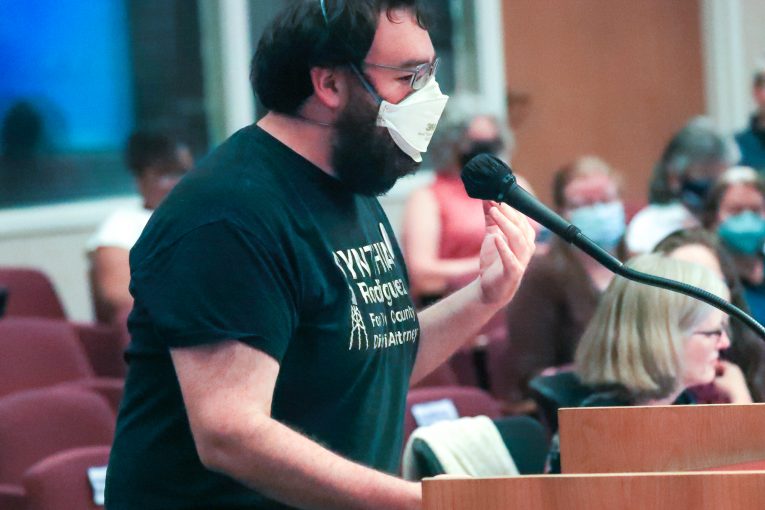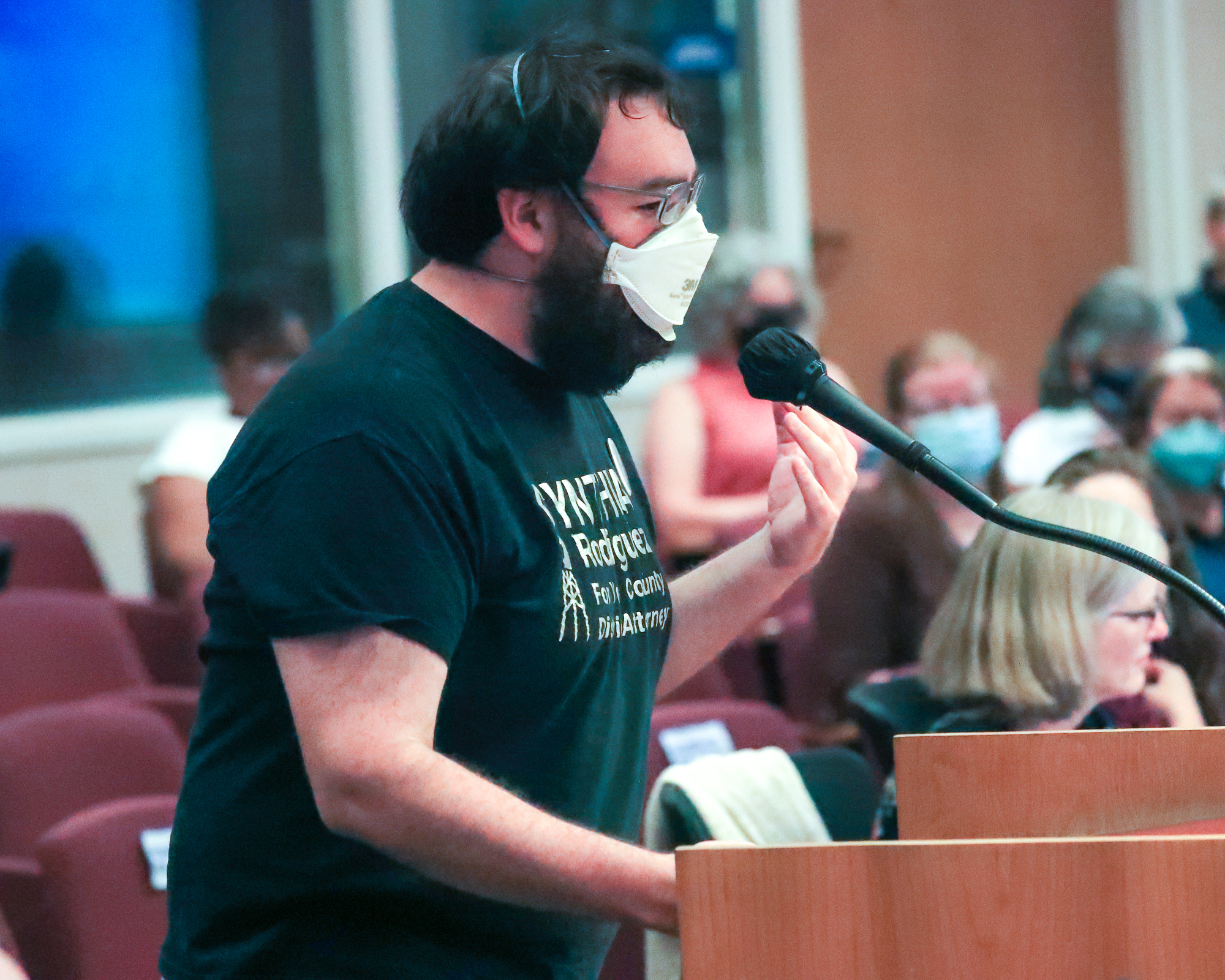

By Connor Gorman
There’s a possibility within electoral politics that doesn’t occur often, if at all, at the moment, but which I’ve considered for awhile, and that’s the notion of an anti-endorsement.
There’s two scenarios where this seems like a potentially preferable option to endorsements. The first of these is a race in which an individual or group likes multiple candidates, where they could anti-endorse any candidates(s) who they don’t like as much as the others (though it’s true that this would essentially be the same as endorsing the multiple candidates who they do like).
The other scenario here is a race in which an individual or group doesn’t particularly support any of the candidates, but does have substantially more problems and disagreements with one of them, where they could then decide to anti-endorse that  candidate rather than endorsing any of that candidate’s opponents. This would amount to somewhat of a “lesser-evil” argument, but would acknowledge that it’s a “lesser-evil” situation rather than pretending (through an endorsement) that they actively support a candidate who they simply consider the “lesser-evil” (this type of anti-endorsement could have been especially helpful during the 2016 and 2020 presidential elections).
candidate rather than endorsing any of that candidate’s opponents. This would amount to somewhat of a “lesser-evil” argument, but would acknowledge that it’s a “lesser-evil” situation rather than pretending (through an endorsement) that they actively support a candidate who they simply consider the “lesser-evil” (this type of anti-endorsement could have been especially helpful during the 2016 and 2020 presidential elections).
Now, there’s certainly some downsides to the idea of anti-endorsements, but it seems like something worth considering, at least under certain circumstances. So in the spirit of piloting it, let me publicly apply it to the upcoming Davis City Council elections.
In District 1, I would apply the first scenario described above because I believe there are two good candidates, Bapu Vaitla and Kelsey Fortune, who would make good Davis City Council members. Unsurprisingly, there’s still things that I disagree with them on, but I think they’d both bring an important perspective to the Council and govern in a way that generally, within the confines of our current systems, benefits Davis and its current and future residents.
This, together with other issues, such as some of Dan’s recent political actions, is why I’m anti-endorsing Dan and encourage those in District 1 to vote for either Kelsey or Bapu. This race is also yet another example of why Davis City Council elections, and all elections, should be ranked-choice, or at least include a runoff system like the one used for Yolo County Supervisor elections.
In District 4, I would apply the second scenario described above because, while I’m not a huge fan of Gloria Partida’s political views and actions (she’s far more right-wing, pro-policing, pro- capitalist, etc. than I’d like), her experiences have clearly given her a better understanding of the needs and challenges that many low-income and marginalized Davisites regularly deal with compared to her out of touch opponent.
Therefore, I’m anti-endorsing Adam and encourage those in District 4 to vote for Gloria. Also, as a general matter that’s independent of the specifics around any particular cases, it’s important to remember that laws, along with what’s criminalized vs. what isn’t, are often (not always, but often) designed by and for the ruling class at the expense of the people, especially marginalized and oppressed communities. Furthermore, violating unjust laws is perfectly ethical (and some might argue a duty).
Connor Gorman is a Davis resident and recent UC Davis graduate in physics.

I unendorse Morrill for his less than full throated repudiation of the sleazy tactics of his supporters. I don’t know Morrill but his wink and nod hands off response tells me all I need to know about his character. This episode, that aimed to benefit Morrill, could be the lowest campaign gambit I have observed in local politics in my 30 years as a resident of this place.
Up until now I have not really been outspoken about my candidate preferences and limited my remarks to responses to things the candidates have said. At one point I even praised Morrill for his remark about the city spending too much on consultants. For full disclosure, I did send a check to Partida’s campaign but that was more about the fact that I’ve known her for 13 years and respect her as a decent, honest and considerate person and I hope that most people in Davis recognize those traits in her.
I think that is why these attacks bother me so much. They are completely unjustified. The fact that they don’t seem to bother Morrill makes me unendorsed him for public office.
In fairness there is still time for him to do the right thing with a more robust condemnation of the disgusting actions of his supporters. Until then I thank Connor for providing me this opportunity to unendorsed and David for the platform to voice my disgust.
So, who determines which laws are unjust and the duty of the people to violate? I mean what you consider an unjust law others might consider just. and vice versa. So please tell us who makes the call, I’m all ears…
MLK: “One has not only a legal but a moral responsibility to obey just laws. Conversely, one has a moral responsibility to disobey unjust laws. Any law that uplifts human personality is just. Any law that degrades human personality is unjust.”
Once again, who makes the call? You didn’t provide any answers.
Someone being busted for shoplifting might feel their human personality is being degraded so they felt they could steal.
I have viewed the laws in the South that enforced segregation as unjust and the duty of people to violate. Or would you rather that those laws remain and segregation still be enforced in the South?
Those laws have already been rebuked, why are you bringing them up now? We’re talking about what laws of today should be adhered to and what laws should people have the right to not obey? Who makes the call?
Isn’t a law a law whether or not it was in the past or present? How hypocritical of you Mr. Olson [edited]
A law is no longer a law if it has been revoked by the lawmakers. Why is this so hard to understand?
I am just pointing out more Republican hypocrisy. Why is it any different today when people refuse to obey current laws?
What does this have to do with Republicans or Democrats. You are off topic here. It’s about obeying the laws on the books or choosing which laws one feels they have or don’t have to abide by? It applies the same for both parties.
Keith O,
Are you claiming that since the segregation laws have been there are no more unjust laws? Or what about against gay marriage or certain sexual acts that have been repealed in this century? Does that mean that we’ve cleared out all of the unjust laws? Claiming we’ve somehow achieved a nirvana of legal perfection is of course ridiculous. An authoritarian may want to claim that all laws are now sacrosanct and inviolable, but a democrat will recognize that there many perspectives and experiences and some will be able to better identify what is unjust. That many laws have been and still are constructed to keep certain classes of individuals poor and resourceless so that they can be better exploited as a workforce is evidence of unjust laws.
And Walter makes great point–the GOP has largely fallen into line with Trump that the 2020 presidential election was fraudulent although every law was followed as determined by almost 100 court cases. (And somehow the other Congressional and state races were executed consistent with legal requirements–not sure how that logic works). So are protests of unjust laws only allowed for those of a political persuasion?
Richard, you’re all over the place with your comment.
What does that have to do with the topic at hand, the article? Why do you on the left always have to revert to Trump and Jan. 6 no matter what the topic is? All I’m asking is who determines which laws are to be followed and which laws are allowed to be broken? Would you be okay with a conservative making those decisions? I think not. Just as conservatives have the same problem with liberals calling all the shots. It’s a slippery slope when people feel they have the right to start breaking whatever law they don’t like. Wouldn’t you agree?
The individual… and they take the responsibility if the “herd” decides otherwise…
The individual takes their knowledge, moral training, their experience, and their “gut” into account… and acts accordingly… the ‘herd’ decides on the consequences of their inherent right to obey or not… simple as that… and, as complex as that…
If the ‘herd’ believes you are ‘right’, you’re right … if the herd believes you are ‘not right’, you might be ‘left out’… simple… and complex